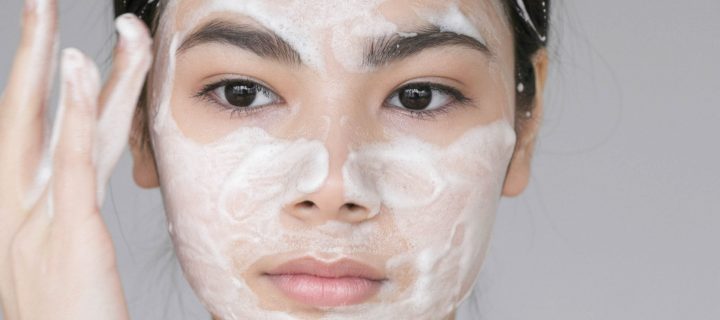We all want to have beautiful, healthy skin. But sometimes the products we use to achieve this can do more harm than good.
So, what ingredients are not good for your skin? Here are five skin care ingredients that you should avoid:
1. Parabens
Parabens are chemicals that are commonly used as preservatives in skin care and cosmetics products.
While they are effective at prolonging the shelf life of products, parabens have been linked to health concerns such as cancer and reproductive toxicity. As a result, many people have decided to avoid parabens in favor of natural or organic alternatives.
While there is still some debate over the risks of parabens, it is clear that they are not worth taking the chance. There are plenty of safe and effective preservatives available, so there is no need to use products that contain parabens. In the end, it is up to each individual to decide whether or not to use parabens, but it is always best to err on the side of caution.
2. Sulfates
Are you wondering “Should I avoid sulfates?” We say yes, you should.
Sulfates are a type of surfactant, which means they are used in cleansing products to reduce surface tension and allow water to more easily mingle with oil and dirt so it can be rinsed away. Sulfates are effective and inexpensive, which is why they’re found in so many cleansers, including shampoos, body washes, and facial cleansers.
So, why is sulfate harmful? Sulfates can be drying and irritating, especially for those with sensitive skin or who have skin conditions like eczema. In addition, sulfates can strip away natural oils, leading to dryness, redness, and irritation.
For these reasons, it’s important to avoid sulfates in skin care and cosmetics, especially if you have sensitive skin. There are plenty of gentle cleansing products on the market that don’t contain sulfates, so you can still get clean without risking irritation.
3. Fragrance
If you’re like most people, you probably love the idea of using fragrant skin care and cosmetic products. After all, who doesn’t want to smell good?
Unfortunately, there are some serious downsides to using fragrances in these products.
So, is fragrance in skin care really that bad? It seems that the answer is yes.
For one thing, fragrances can actually cause skin irritation, especially for people with sensitive skin and inflammatory skin conditions like eczema or psoriasis. In addition, fragrances can trigger allergies and asthma attacks in some people.
And finally, many synthetic fragrances contain harmful chemicals that are not mentioned clearly on the labels and can potentially disrupt your hormones and cause other health problems. In general, skin experts believe that fragrances are unnecessary when it comes to skin care and cosmetics. Why do we need some extra chemicals that might potentially be bad for the skin just so that the product can smell good, right?
For all these reasons, it’s best to avoid fragrances in your skin care and cosmetic products. Stick to natural products that don’t have artificial fragrances to keep your skin healthy and free from irritation. However, note that even natural ingredients (such as essential oils) can cause allergic reactions, so always do a patch test first!
4. Alcohol
Alcohol is commonly used in skin care products and cosmetics because it preserves the product and also helps it penetrate the skin better.
You must be thinking, then, why you should avoid alcohol in skin care and cosmetics. We’ll explain.
There are many good reasons to avoid alcohol in skin care and cosmetics. For one, alcohol can be very drying to the skin, stripping away natural oils and leaving the skin feeling tight and uncomfortable.
Alcohol can also irritate the skin, causing redness and inflammation. In addition, alcohol is a known source of free radicals, which can damage skin cells and lead to early signs of aging.
Finally, products that contain alcohol are often more likely to cause allergic reactions. For all these reasons, it’s best to avoid products that contain alcohol, especially if you have sensitive or dry skin.
However, note that not all alcohols are the same. What you should try to avoid, particularly if you have oily or acne-prone skin, are vaporative solvent alcohols or simple alcohols (like ethanol and isopropyl alcohol), and not fatty alcohols (or good alcohols).
5. Phthalates
Phthalates are a type of plasticizer that is used to make products more flexible. They are often used as binding agents in fragrances, skin care products, and cosmetics and also increase the longevity of said products.
However, phthalates have been linked to health problems such as cancer, allergies, and reproductive toxicity. For this reason, many health organizations recommend avoiding phthalates in skin care and cosmetic products. It’s also best to avoid plastic containers for food.
Phthalates can enter the body through the skin or by inhalation. Once inside the body, they can accumulate in fatty tissues and organs. Studies have linked phthalate exposure to reproductive problems such as reduced sperm count, testicular atrophy, miscarriages, and birth defects. Exposure during pregnancy has also been linked to learning and behavior problems in children.
Given the potential risks of phthalate exposure, it is best to avoid products that contain them. Many skin care and cosmetic products do not list phthalates on the label, so it is important to check with the manufacturer before purchasing a product. You can also look for products that are certified “phthalate-free.”
When choosing skin care products, always look for ones that are free of these harmful ingredients that we’ve mentioned above. Remember that these ingredients might be found not only in skin care and makeup products but also in baby care products, pet products, and home cleaning products.
Thus, it’s best to stick to reputed brands that you know consciously stay away from harmful ingredients like the ones mentioned above. Some such brands are:
Always do your research before buying something that goes on the skin or hair!





